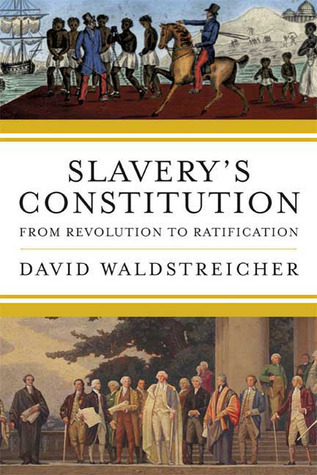What do you think?
Rate this book


208 pages, Hardcover
First published June 23, 2009
A more detailed look at the role slavery played in the creation of the constitution, but a rather quick read. The book breaks down things into three sections: a look at how things exist under the Articles of Confederation and how slavery affects that; a discussion of the great compromises during the constitutional convention; and a look at the peoples response to those compromises during the ratification process.
While the book does a good job covering the major points of the argument that slavery influenced the great compromises that constructed our constitution, it is a subject matter that deserves an even greater dissection. It does appear that the writer has created a very good list of resources to make a more in-depth investigation of the matter.